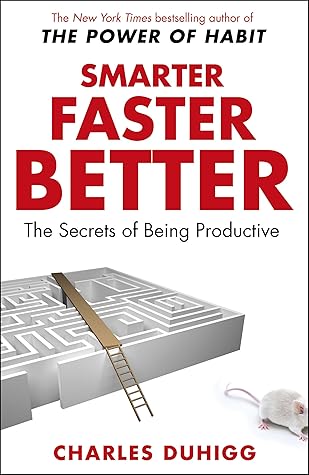More on this book
Community
Kindle Notes & Highlights
Motivation is more like a skill, akin to reading or writing, that can be learned and honed. Scientists have found that people can get better at self-motivation if they practice the right way. The trick, researchers say, is realizing that a prerequisite to motivation is believing we have authority over our actions and surroundings. To motivate ourselves, we must feel like we are in control.
“You know when you’re stuck in traffic on the freeway and you see an exit approaching, and you want to take it even though you know it’ll probably take longer to get home?” said Delgado. “That’s our brains getting excited by the possibility of taking control. You won’t get home any faster, but it feels better because you feel like you’re in charge.”
This is a useful lesson for anyone hoping to motivate themselves or others, because it suggests an easy method for triggering the will to act: Find a choice, almost any choice, that allows you to exert control. If you are struggling to answer a tedious stream of emails, decide to reply to one from the middle of your in-box. If you’re trying to start an assignment, write the conclusion first, or start by making the graphics, or do whatever’s most interesting to you.
Locus of control has been a major topic of study within psychology since the 1950s.26 Researchers have found that people with an internal locus of control tend to praise or blame themselves for success or failure, rather than assigning responsibility to things outside their influence. A student with a strong internal locus of control, for instance, will attribute good grades to hard work, rather than natural smarts. A salesman with an internal locus of control will blame a lost sale on his own lack of hustle, rather than bad fortune. “Internal locus of control has been linked with academic
...more
Studies show that someone’s locus of control can be influenced through training and feedback. One experiment conducted in 1998, for example, presented 128 fifth
graders with a series of difficult puzzles.27 Afterward, each student was told they had scored very well. Half of them were also told, “You must have worked hard at these problems.” Telling fifth graders they have worked hard has been shown to activate their internal locus of control, because hard work is something we decide to do. Complimenting students for hard work reinforces their belief that they have control over themselves and their surroundings. The other half of the students were also informed they had scored well, and then told, “You must be really smart at these problems.”
...more
This highlight has been truncated due to consecutive passage length restrictions.
We praise people for doing things that are hard.
We’re trying to teach them that you can’t just obey orders. You have to take control and figure things out for yourself.”
If you can link something hard to a choice you care about, it makes the task easier, Quintanilla’s drill instructors had told him. That’s why they asked each other questions starting with “why.” Make a chore into a meaningful decision, and self-motivation will emerge.


